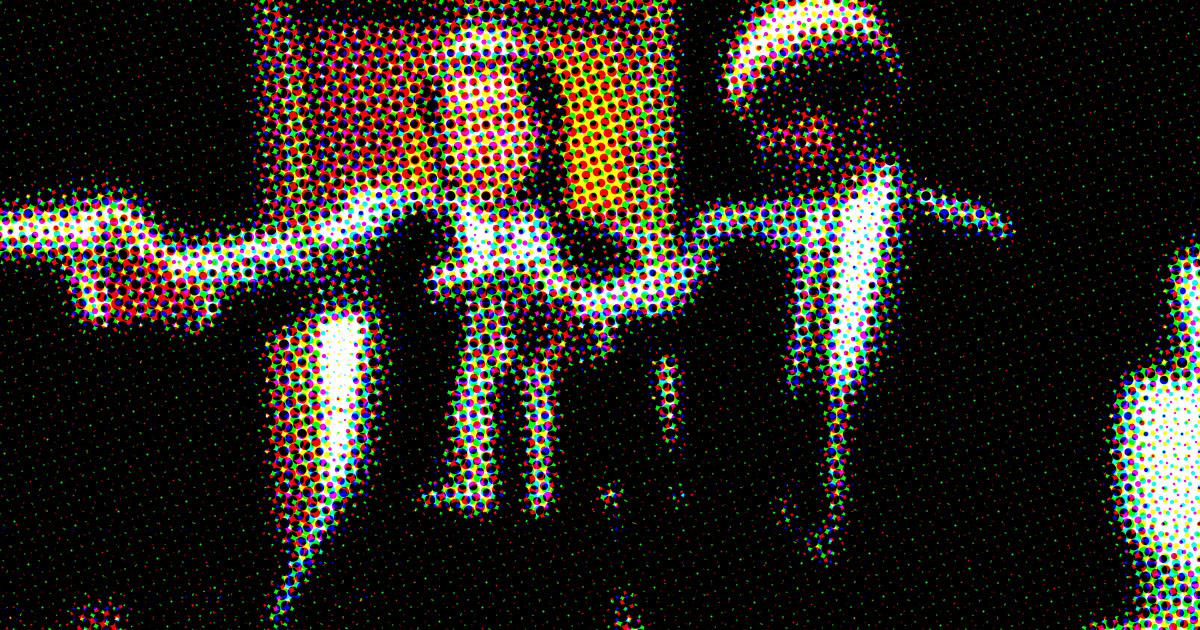A Royale with Cheese Marketing Lesson
So, I was reading an article the other day – you know, the kind that makes you feel ancient – about how it’s been thirty years since Tarantino unleashed Pulp Fiction on the world. Thirty years! Feels like just yesterday I was telling anyone who’d listen what they call a Quarter Pounder with Cheese in Paris. Anyway, the article got me thinking. That flick wasn’t just a cinematic masterpiece; it was a marketing triumph. $214 million worldwide on an $8 million budget? That’s not just good; that’s Royale-with-Cheese-good. And it’s not just the numbers. Pulp Fiction was a cultural phenomenon. It resurrected John Travolta from the disco graveyard, solidified Samuel L. Jackson’s badass persona, led to a poster of Uma Thurman as Mia Wallace on every teenage boys bedroom wall, and gave us enough quotable lines to last a lifetime.
The article talked about how Tarantino, the cinematic alchemist, blended high and low culture, mixing arthouse sensibilities with grindhouse grit. He took the familiar – the crime genre, classic Hollywood tropes – and twisted them into something fresh, unexpected, and undeniably cool. Think about that opening scene, the casual diner robbery that descends into… well, you know. It’s shocking, funny, and instantly captivating. And then there’s the dialogue, that signature Tarantino banter that’s as sharp as a switchblade and as addictive as a five-dollar milkshake. From Vincent and Jules’ philosophical musings on foot massages and European fast food to Mia Wallace’s enigmatic pronouncements, every line is a potential catchphrase. The article even mentioned how Tarantino brilliantly structured the narrative, jumping back and forth in time, creating a sense of suspense and intrigue that kept audiences glued to their seats. It’s this masterful blend of storytelling, character development, and stylistic flair that made Pulp Fiction so iconic.
And that got me thinking even deeper than Marcellus Wallace’s hidden briefcase… what can marketers, especially those of us in the tourism and hospitality game, learn from this cinematic goldmine? What can we learn from Tarantino’s genius, his ability to capture the zeitgeist and create a cultural earthquake? Now, I’m not saying you should start throwing around samurai swords or quoting Ezekiel 25:17 (though, admit it, the temptation is real). But I am saying that this 30-year-old flick holds some surprisingly timeless lessons, the kind that can transform your marketing from “okay” to “iconic,” from a Big Kahuna Burger to a Royale with Cheese. So, grab your $5 milkshake (because you don’t want to be a cheapskate), a Royale with Cheese (because you’re adventurous), and a decent watch (just don’t ask where it’s been) and settle in. We’re about to dissect Pulp Fiction and extract some marketing gold.
The Gist: It’s More Than Just a Bad Motherf***er Wallet
Pulp Fiction isn’t just a cult classic dripping with style and violence; it’s a masterclass in branding, storytelling, and audience engagement. It tapped into the cultural zeitgeist like a syringe full of adrenaline, sparking conversations, inspiring countless imitations, and creating a loyal following that persists even today. Remember, this was 1994, pre-internet virality. They built this buzz the old-fashioned way: word-of-mouth, killer reviews, and a whole lot of “Did you see that scene?” That kind of organic growth is like gold dust in today’s digital marketing landscape.
Think about it: Could your hotel, restaurant, or tour be the Royale with Cheese of your niche? Could you generate the kind of buzz that makes people line up around the block, not just for a burger, but for an experience? That’s what we’re aiming for. We’re not just selling rooms or meals; we’re selling stories, emotions, and memories as vivid and unforgettable as a Tarantino close-up.
Why It Matters: Because Your Audience Wants More Than Just a Bed and a Meal
The tourism and hospitality industry is like a crowded dance floor, everyone vying for the same spotlight, the same customers. You can’t just slap a picture of a sunset on a website and expect the bookings to roll in. You’re competing with Airbnb, Booking.com, and a million Instagram influencers. You need to captivate. You need to connect. You need to give people something to talk about – something as quotable as Jules Winnfield himself.
Pulp Fiction succeeded because it didn’t play it safe. It took risks, shattered conventions like a misplaced shotgun blast, and gave us characters we loved (or loved to hate), dialogue sharper than a switchblade, and a non-linear story that kept us guessing until the very end. This is what your audience craves. They don’t want generic; they want authentic. They don’t want predictable; they want surprising. They don’t want a transaction; they want an experience as unforgettable as Mia Wallace’s dance moves.
How to Implement It: Channeling Your Inner Tarantino (Without the Violence, Preferably)
So, how do we translate the cinematic magic of Pulp Fiction into actionable marketing strategies that’ll have your target audience lining up faster than a hit squad outside Butch Coolidge’s apartment? Here’s the breakdown:
- Embrace the Power of Storytelling (Like the Royale with Cheese Revelation): Remember how that scene transforms a simple burger into a cultural phenomenon? It’s the conversational storytelling, the unexpected twist, the pure cinematic joy of discovery. Don’t just tell your audience what you offer; show them. Craft compelling narratives around your destination. Is your hotel nestled in a historic town? Spin a yarn about its past. Does your restaurant specialize in local cuisine? Share the story of the farmers who supply your ingredients. Make it personal, engaging, and as memorable as a Big Kahuna Burger.
- Cultivate Your Inner Jules Winnfield (The Redemption Arc): Jules’ journey from trigger-happy hitman to a man pondering the mysteries of the universe demonstrates the power of brand evolution. Brands, like people, can grow and change. Regularly audit your brand’s values, messaging, and offerings. Are they still relevant? Do they resonate with your evolving audience? Perhaps your eco-friendly hotel can partner with a local reforestation project, showcasing your commitment to sustainability and appealing to environmentally conscious travelers. This kind of evolution resonates deeply with today’s value-driven consumer.
- Master the Art of the Mia Wallace Mystique (Intrigue and Exclusivity): Mia’s captivating allure isn’t about revealing everything; it’s about the art of the veiled glimpse, the whispered secret. Generate buzz by offering exclusive experiences, limited-edition packages, behind-the-scenes access. Think “secret menu” items, VIP rooftop parties, or personalized concierge services that cater to your guests’ unique desires. Don’t reveal all your cards at once; pique their curiosity and leave them craving more. Just like Marcellus Wallace’s mysterious briefcase, keep them guessing.
- Channel Your Inner Butch Coolidge (Loyalty and Integrity): Butch risks life and limb for his father’s gold watch, a symbol of heritage and unwavering commitment. This resonates deeply with customers who value integrity and loyalty. Highlight your brand’s history, its unique story, its unwavering commitment to quality. Showcase your dedication to customer satisfaction. Perhaps your family-run vineyard can offer exclusive tastings and tours, emphasizing generations of winemaking tradition and expertise, building a bond of trust stronger than Butch’s bond with Fabienne.
- Build Your Marcellus Wallace Brand Presence (Authority and Command): Now, we’re not suggesting you adopt Marcellus’s… persuasion tactics. However, the principle of commanding respect and establishing authority in your niche is crucial. Become a thought leader in your industry. Share valuable insights, offer expert advice, and build a reputation for excellence that precedes you like the whispers of Marcellus Wallace’s name. This might involve hosting industry events, publishing insightful blog posts (like this one!), or partnering with influencers who share your values.
- Partner Up Like Vincent and Jules (Strategic Alliances): Vincent and Jules, despite their often chaotic dynamic, are a surprisingly effective team. They complement each other’s (admittedly questionable) skills. Identify complementary businesses and forge strategic alliances. A local hotel could partner with a nearby adventure tour company, offering bundled packages that cater to thrill-seeking travelers. A restaurant could team up with a craft brewery for a curated tasting menu. Think outside the box and find win-win collaborations that expand your reach, enhance your offerings, and create a buzz as infectious as a Jack Rabbit Slim’s twist contest.
- Handle the Bonnie Situation Like a Pro (Crisis Management): Let’s face it, even the best-laid plans can go sideways faster than a Marvin incident. A negative review, a customer complaint, an unexpected event—it’s not a matter of if but when. How you handle these situations defines your brand. Have a crisis management plan in place. Respond promptly, professionally, and with genuine empathy. Turn a negative into a positive by showcasing your commitment to customer satisfaction and your ability to resolve issues smoothly and efficiently.
- Don’t Be Afraid to Break the Royale with Cheese Mold (Innovation and Differentiation): What makes your brand stand out in a crowded marketplace? What’s your unique selling proposition? What’s your equivalent of a Royale with Cheese? Don’t be afraid to challenge industry conventions, to offer something fresh, unexpected, even a little edgy. Maybe your hotel offers themed rooms based on local history, pop culture icons, or even Pulp Fiction itself (complete with a Royale with Cheese on the room service menu, naturally).
- Leverage the Nostalgia (Tap into Emotional Connections): Nostalgia is a powerful marketing tool, as potent as a shot of adrenaline straight to the heart. If your establishment has a rich history, use it! Celebrate milestones, share vintage photos, create experiences that evoke the charm and allure of the past. A historic hotel could offer “retro weekend” packages featuring vintage cocktails, period music, and guided tours that transport guests back in time.
- Sweat the Small Stuff (The Five Dollar Milkshake Principle): It’s the seemingly insignificant details that elevate the customer experience from ordinary to extraordinary. The personalized welcome note, the complimentary bottle of local wine, the carefully curated playlist in the lobby. These are the touches that resonate, the memories that linger, the elements that transform a transaction into a lasting relationship.
You might be thinking, “This is all well and good, Andy, but how do I actually measure the impact of these Tarantino-inspired tactics?” Well, you could spend a fortune on fancy AI tools and still not get a clear answer. Or, you could do it the old-fashioned way: ask your customers. “How did you hear about us?” “What did you enjoy most about your stay?” “Did you enjoy your meal?” “Did you enjoy the tour?” There’s no substitute for real feedback, for understanding what resonates with your audience.
Look, marketing isn’t rocket science (unless you’re Elon Musk, in which case, carry on). It’s about understanding your audience, connecting with them on an emotional level, and giving them something they’ll remember. Pulp Fiction, in all its quirky, violent glory, gives us a blueprint for doing just that. So, go forth and create your own cinematic masterpiece. Just, you know, maybe skip the gimp suit.
Ready to take your marketing to the next level? Contact us today, and let’s craft a strategy that’s as captivating and unforgettable as Pulp Fiction itself.










